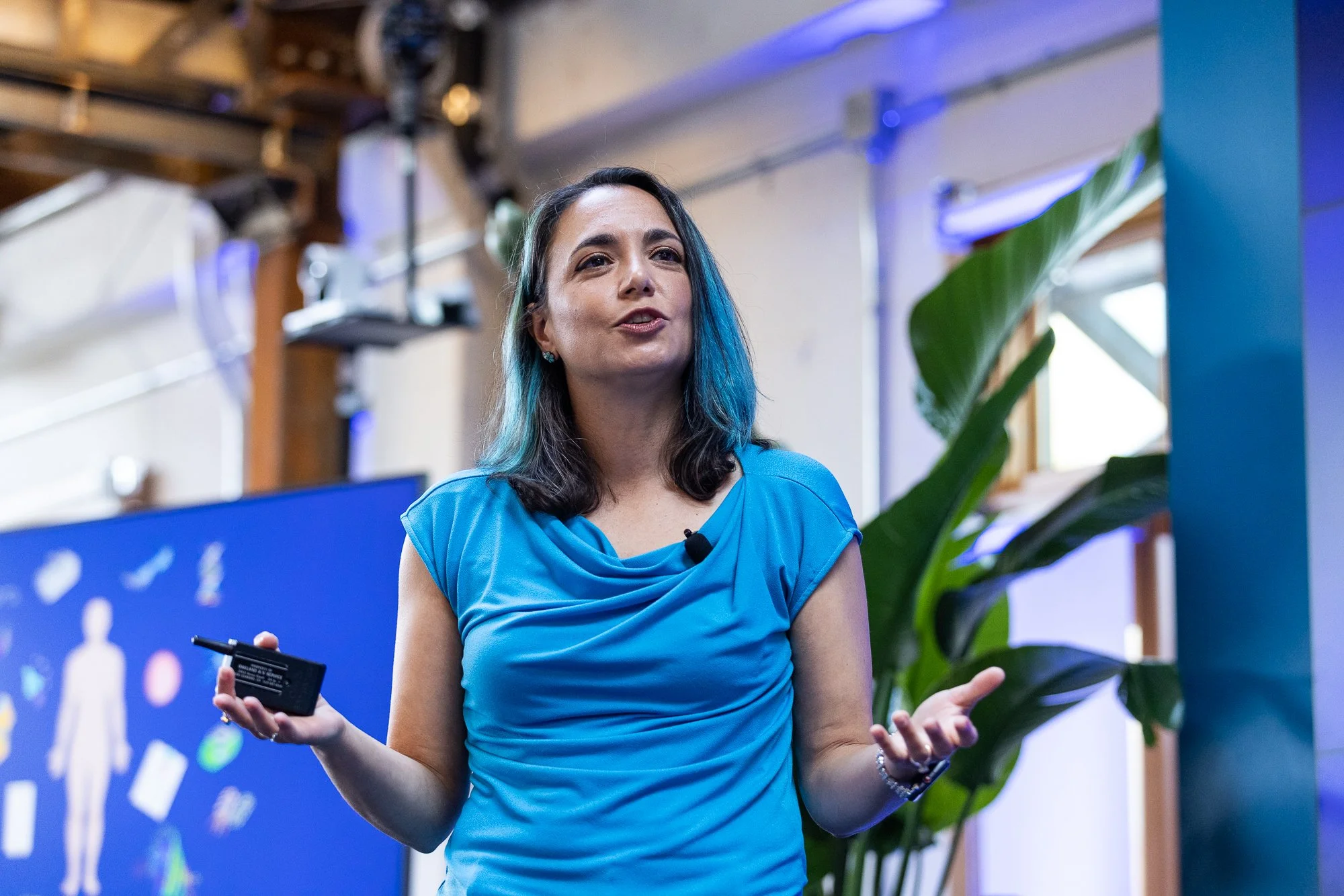What I Think About Plant-Based Protein Substitutes and The Future of Food
Dr. Tiffany Vora at the EY Disruptive Tech Program. | Photo credits: Drew Bird.
Are plant-based protein substitutes the future of food?
Reducing the amounts of land, water, antibiotics, energy, ecosystem impact, protein needed for production, biodiversity loss, and animal suffering in agriculture is a compelling goal. That’s why I’ve been following this innovation space, and why I’m excited to try these new products as they come onto the market.
Back in 2018, at the Good Food Institute’s Good Food Conference, I got to sample a variety of plant-based substitutes from a bunch of companies, some established, some startups. [I ate a lot. For days. It was amazing.] In an article for Singularity Hub, I wrote up my tasting notes for two kinds of fish-free tuna that I thought were good, but weren’t as satisfying as tuna from the ocean—especially ahi tuna, which I confess to adoring despite the precarious (yet improving) state of tuna populations.




Fast forward to March 2022 and a “disruptive dinner” hosted by EY’s Disruptive Tech Program. The food on the table was beautifully presented, but of course my spidey sense was tingling. I noticed that the “crab cakes” and “fish tacos” were pleasantly mild and flaky, but they lacked the oil I would have expected. The mini “lamb burger” was fun. But the lamb kebabs knocked my socks off. As I took a bite, I thought, “Wow, this is what I’ve been missing!”*
💡 Then came the big reveal: no animals on the table!
The fish substitutes were produced by Good Catch from a mixture of six legumes. And the “lamb” that I had enjoyed so much was a plant-based product from Black Sheep Foods. The mouthfeel wasn’t an exact match for traditional mutton, but Black Sheep really nailed that “lamby flavor” that is unmistakable.
Here’s the thing: plant-based substitutes are processed foods, and they can have relatively high levels of sodium and saturated fats. In general, I avoid processed foods. If I want to eat vegetables, then I eat vegetables. However, a Stanford trial reported improvements in some cardiovascular disease risk factors in healthy adults who ate “appetizing plantfood”, a charming euphemism for Beyond Meat (although, as always, we should be cautious when trying to draw direct comparisons between very different studies).
💡 Do I think plant-based substitutes for meat/fish are “the answer” to the future of food? Not completely. But I do think that they are an exciting frontier that could potentially open up new, sustainable strategies for protein production—as well as new tastes, smells, and textures to enjoy.
In the developed world, many (if not most) of us could stand to eat a bit less animal-based protein and fat. But there are still many areas of the globe where people lack the necessary calories, proteins, and health to thrive. Plant-based protein could help both groups as part of a multi-pronged approach—including increasing our consumption of whole or minimally processed plants—to improve human health and to protect the planet and the living things on it.
*My family has drastically reduced the amount of red meat that we buy for reasons including the intensive use of land for producing beef and mutton.
About Tiffany
Dr. Tiffany Vora speaks, writes, and advises on how to harness technology to build the best possible future(s). She is an expert in biotech, health, & innovation.
For a full list of topics and collaboration opportunities, visit Tiffany’s Work Together webpage.
Get bio-inspiration and future-focused insights straight to your inbox by subscribing to her newsletter, Be Voracious. And be sure to follow Tiffany on LinkedIn, Instagram, Youtube, and X for conversations on building a better future.
Donate = Impact
After a 19-day voyage to Antarctica aboard The Island Sky in November 2023, Tiffany has many remarkable stories to share & a wealth of insights to catalyze a sustainable future.
You can support her ongoing journey by making a contribution through her donation page. Your support will spread positive impact around the world, empower Tiffany to protect time for impact-focused projects, and support logistical costs for pro bono events with students & nonprofits.


